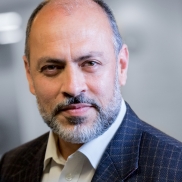Police reforms are needed. However, reforms need to take 360 degrees of perspective to help us understand that policing is a challenging job to do. It is costly and complex.
Police officers are not born and bread in police academies. They are part of the same society and reflect its values. They interact with community members 24/7 on matters ranging from homicide to kijiji sales issues. The most challenging job for the police is preserving human life while maintaining order, like the complexity of the “freedom” convoy in Ottawa. With police badge comes great responsibility – not a license to discriminate, as perceived.
Police officers work under constant stress. They face dangerous circumstances and attempt to resolve complex community issues. These include responding to unpredictable, stressful situations – including use-of-force decisions. There is no doubt that constant interaction with various social problems puts some officers under psychological strain.
In the reform conversation, accurate and comprehensive data on many factors is essential to an informed and productive discussion. Besides thorough use of force data in the context of community equity status, some of the additional factors that need to be scientifically assessed are:
1) The level of medical/mental stress – anxiety and PTSD – and its impact on officers’ behaviour.
2) Role of the race-factor vs outcome of split decisions under constant challenging job environments.
3) Frequency of use of force decisions in smaller towns vs their impact on community’s perception influenced by more systemic and frequent occurrence elsewhere.
4) The trend of media reporting certain events that causes a public frenzy vs portraying an accurate picture of the reality
5) The role of disparity, inequity and social determinants of health in the increased calls for service from certain areas vs comparative use of force stats in various communities.
6) A thorough use of force database showing police brutality and misconduct in general vs actions of offenders in specific geographies/communities and circumstances before the officer opted to use force.
When it comes to providing any insight into the specifics of the use of force by the police and other instances of prejudice, the research is obviously lacking. The number of calls from the most inequitable communities, mental health status, weapons possession, aggression type, nature of police call/pursuit, the specific location, etc., are all predefined indicators that have received little scholarly study.
To avoid blaming the police alone for systematic racism or limiting the core causes of discrimination to that alone, researchers must approach it with a high level of curiosity that mirrors the proverbial devil is in the detail.
The importance of such study is crucial for reducing the use of discriminatory force by police and for addressing unfavourable opinions of the police.




Comments
droversointeru
I was very pleased to find this web-site.I wanted to thanks for your time for this wonderful read!! I definitely enjoying every little bit of it and I have you bookmarked to check out new stuff you blog post.